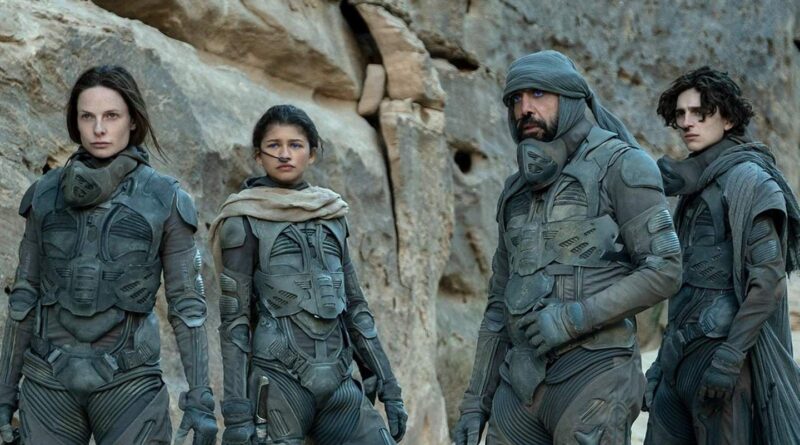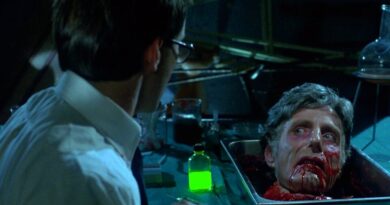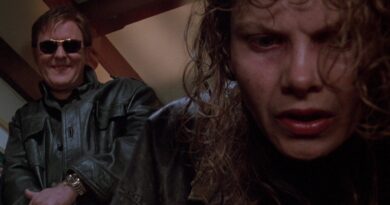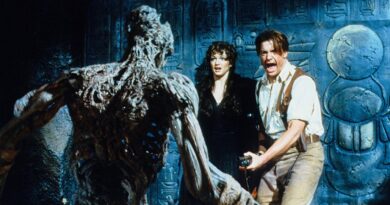Dune (2021)
Despite a fan base that has grown over the decades, true film lovers have always understood that David Lynch’s 1984 adaptation of Dune was a catastrophe. In attempting to condense the entirety of Frank Herbert’s epic, complicated novel into a single 137-minute film, it became overplotted, overpopulated, and impossible to follow along with. It bombed at the box office, was eviscerated by critics, and would ultimately “win” the 1985 Stinkers Bad Movie Award for Worst Picture. Lynch has long since disowned the film, citing studio interference, the compromising of his artistic vision, and the denial of final cut privileges as the reasons for its failure. Perhaps this is true. Or perhaps he simply made a movie that sucked.
Denis Villeneuve was assigned with the daunting, unenviable task of readapting the novel into a new film (shot in 2019 with an original release date of November 20, 2020, but delayed, as so many films were, because of the COVID-19 pandemic). To say that it works better than Lynch’s film would be the year’s biggest understatement. The plot, though still challenging, is much easier to follow. It’s less of an issue determining the significance and motivations of specific characters. And it’s now clear that the story was never intended to be a mere science fiction spectacle set in the very distant future; it’s a sociopolitical allegory, filled with characters that will lie, cheat, steal, or all of the above in order to obtain power over the universe.
A significant factor of this film’s success, I believe, was simply waiting for the right time; only now can the special effects available to filmmakers capture the feel of the alien technologies and creature effects described in the novel. In this film, it’s far easier to believe that we’re looking at real spaceships made to resemble dragonflies, and at worms of titanic size that slither through the sands of the title planet, also known as Arrakis. The visuals, as epic in scope as the story itself, are helped greatly by the film’s bright, gigantic IMAX presentation. You also have the option to see it in 3D, that most dreaded of cinematic comebacks, which I thought had finally died when the COVID lockdown forced us to see all new films at home on streaming services. Here’s hoping this film marks its final gasp.
The single most important factor of the film’s success was Villeneuve’s decision to not adapt the entire novel; he and his co-screenwriters adapted, according to several entertainment reports, roughly half of it – which I suppose accounts for why the opening title card, rather than the poster, reads Dune: Part One. At last, we can watch the story unfold at a deliberate pace and actually understand what’s going on. At last, the characters have substance to them, and there are discernible reasons for why they were included. And when specific characters exit the story, we’re not left scratching our heads wondering where they’ve gone off to.
Of the many, many issues with Lynch’s film, casting thankfully wasn’t one of them (even if star Kyle MacLachlan, twenty-four at the time, was past the point of believably playing a fifteen-year-old character). But what’s the point of good casting if the material is subpar? The pleasure of watching Villeneuve’s film is not only that the material is more thought out, it’s also that the casting is just as strong. Topping that list is Timothée Chalamet as Paul Atreides, heir to the leadership of House Atreides … and rumored to be a prophesied savior for the indigenous peoples of Arrakis, known as the Fremen. Though he was also in his early twenties at the time of principal photography, unlike MacLachlan, Chalamet looked youthful enough to pass for a teenager. His performance convincingly shows Paul’s transition from spoiled and aristocratic to cunning and resourceful.
The rest of the cast also gives solid performances. We have: Oscar Isaac as Paul’s father Leto, the Duke of House Atreides and the newest leader of Arrakis; Rebecca Ferguson as Paul’s mother Jessica, a concubine who defies the traditions of her politically-influenced religious order and teaches her son in their ways; Josh Brolin as Paul’s mentor and weapons trainer Gurney Halleck; Jason Momoa as warrior and Paul’s best friend Duncan Idaho; Stellan Skarsgård as Baron Vladimir Harrkonen, the obese and disgusting sworn enemy of House Atreides; Dave Bautista as the Beast Rabban, the Baron’s aptly-named hulk of a nephew; Zendaya as a young Fremen woman who appears almost entirely in Paul’s recurring dreams; Javier Bardem as the leader of Zendaya’s Fremen tribe; and Charlotte Rampling as a stern Reverend Mother who sees Paul as a threat.
If there is a flaw to Dune, it would be that not much happens. This is an introductory story, told mainly to establish character and pave the way for the more significant events of future chapters. However, this is preferable to David Lynch’s approach of cramming it all into one movie. My mother, for whom Lynch’s film is a guilty pleasure, summed it up perfectly: Imagine all three episodes of the original Star Wars trilogy edited into a single two-and-a-half-hour movie. Denis Villeneuve opted for a mere setup with his film. And it’s a good one. We learn that Arrakis is the only place in the universe in which a psychotropic spice is found, and for that very reason, the planet has been repeatedly occupied and exploited. House Atreides is the newest occupier. House Harkonnen wants to gain political control, and the Baron seems willing to go to any lengths to make that happen. To be continued…




